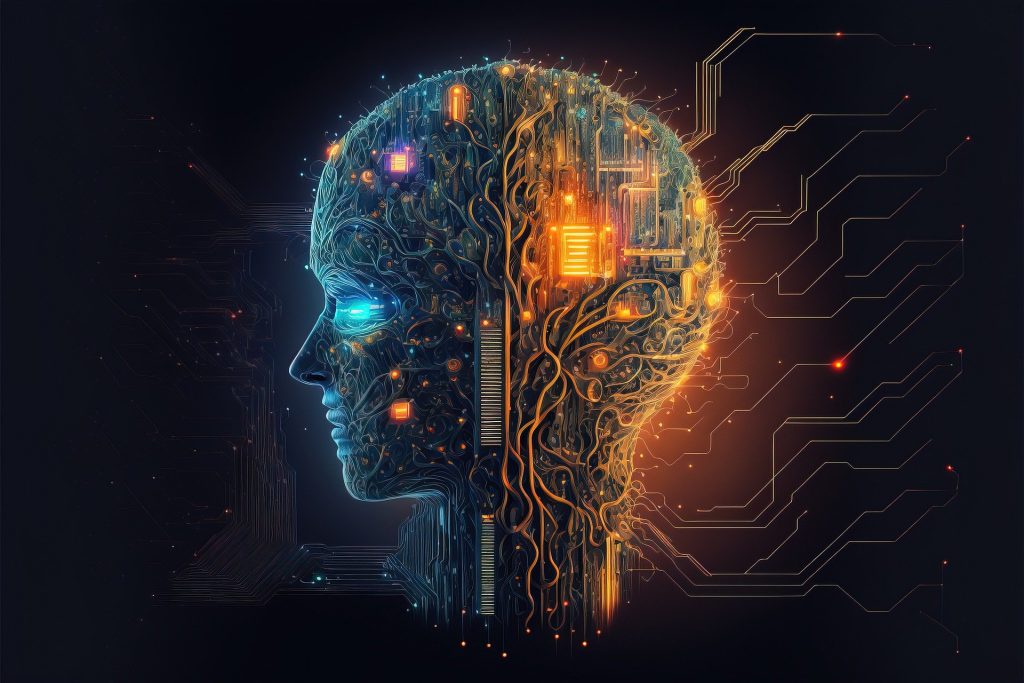AI in Everyday Life: How Conversational AI is Changing Our World
Artificial intelligence (AI) is no longer just a concept from science fiction; it’s part of our everyday reality. One of the most transformative applications of AI is conversational AI—the technology that powers virtual assistants, chatbots, and voice-controlled devices. From how we shop to how we work, conversational AI is reshaping various aspects of our daily lives, offering convenience, improving efficiency, and enabling more personalized interactions.
In this blog, we’ll explore how conversational AI is becoming integrated into the fabric of modern life and how it’s changing the way we live, work, and communicate.
1. Voice Assistants: Your AI Companion at Home
One of the most common forms of conversational AI that millions of people interact with daily is the voice assistant. Whether it’s Amazon’s Alexa, Google Assistant, or Apple’s Siri, these AI-powered assistants have become integral parts of smart homes.
- Controlling Smart Devices: Voice assistants allow users to control smart home devices such as lights, thermostats, and security systems just by speaking. You can say, “Alexa, turn off the lights,” and your home responds immediately.
- Setting Reminders and Alarms: With just a simple command, users can set reminders, create to-do lists, or set alarms without lifting a finger.
- Answering Questions: Want to know the weather forecast, the latest news, or get a recipe? These voice assistants use conversational AI to provide you with answers instantly, acting as personal assistants that are always available.
Impact on Daily Life: These voice-controlled AI systems make everyday tasks more convenient, freeing users from manual control and enabling multitasking with ease.
2. AI in Customer Service: Instant, 24/7 Support
Conversational AI is revolutionizing customer service by introducing AI chatbots that provide instant, 24/7 support to customers. These bots are becoming increasingly common on websites and messaging platforms, offering companies the ability to handle queries and problems without human intervention.
- Instant Responses: AI chatbots can instantly answer frequently asked questions, guide users through processes, or help troubleshoot issues. Whether it’s checking account balances, tracking orders, or getting product recommendations, chatbots make the customer service process faster and more efficient.
- Seamless Escalation: If the chatbot can’t handle a query, it seamlessly escalates the conversation to a human agent, ensuring users receive the support they need.
- Personalized Interactions: Thanks to machine learning and natural language processing (NLP), chatbots can learn user preferences, delivering personalized recommendations and interactions over time.
Impact on Daily Life: AI-driven customer service means we no longer need to wait in long queues or on hold for support. It also ensures that help is available anytime, day or night.
3. AI in Healthcare: Conversational AI for Medical Assistance
Healthcare is another sector where conversational AI is making an impact, particularly through AI-powered virtual health assistants and chatbots. These systems help patients manage their health, understand symptoms, and even receive initial diagnoses.
- Symptom Checking: AI-based medical chatbots like Ada or Buoy Health analyze user-reported symptoms and provide possible diagnoses or advice on whether to seek medical attention.
- Appointment Scheduling: Conversational AI systems can schedule appointments, remind patients of their medications, and offer follow-up care instructions, making healthcare management more accessible.
- Telemedicine: Virtual assistants can help facilitate telemedicine appointments, ensuring patients connect with healthcare providers quickly and easily.
Impact on Daily Life: Conversational AI makes healthcare more accessible and personalized, offering patients the opportunity to manage their health proactively, even outside of a doctor’s office.
4. AI in Retail: Personalized Shopping Experiences
In the retail industry, conversational AI is changing how people shop, both online and in-store. AI-powered chatbots and virtual assistants provide personalized shopping experiences, making it easier for customers to find products they love.
- Product Recommendations: AI chatbots can recommend products based on a user’s browsing or purchase history. For instance, Sephora’s chatbot uses customer preferences to suggest beauty products, while H&M’s chatbot helps users find outfit recommendations.
- Voice-Activated Shopping: Voice assistants like Google Assistant and Amazon Alexa allow users to shop by simply speaking commands like “Order more coffee” or “What are the best headphones under $100?”
- Customer Support: Retail chatbots handle questions about order status, return policies, and product availability, providing immediate answers and reducing the need for live customer support.
Impact on Daily Life: Conversational AI creates a more streamlined and personalized shopping experience, making it easier for consumers to find what they need, ask questions, and complete purchases with minimal effort.
5. AI in Workplaces: Boosting Productivity and Collaboration
Conversational AI is also transforming the modern workplace by improving productivity and collaboration. AI-driven virtual assistants can help employees manage tasks, organize meetings, and stay on top of projects.
- Scheduling Meetings: AI tools like x.ai or Clara can automate the process of scheduling meetings, coordinating times between participants and sending out invites.
- Automating Tasks: Virtual assistants can automate repetitive tasks, such as sending follow-up emails, managing task lists, or setting reminders.
- Collaborative Workspaces: AI chatbots in platforms like Slack or Microsoft Teams help teams communicate and collaborate by answering questions, sharing documents, or tracking project progress.
Impact on Daily Life: By reducing the time spent on administrative tasks, conversational AI allows employees to focus on higher-value work, ultimately boosting productivity and efficiency in the workplace.
6. AI in Education: Enhancing Learning Experiences
Conversational AI is also making its way into the education sector, providing students with new ways to learn and engage with content. From virtual tutors to AI-powered learning platforms, the technology is enriching the educational experience.
- Virtual Tutors: AI-powered platforms like Duolingo use conversational AI to help students learn new languages by engaging them in personalized conversations and providing instant feedback.
- AI Chatbots for Learning: Educational chatbots answer student queries about course material, explain concepts, or provide study tips, acting as virtual teaching assistants.
- Personalized Learning Paths: AI-driven platforms can tailor the learning experience to a student’s needs, recommending lessons based on their performance and learning pace.
Impact on Daily Life: Conversational AI empowers students to learn at their own pace, providing personalized support and improving access to educational resources.
7. AI in Travel: Planning Trips with Ease
Travel planning has become easier than ever with the integration of conversational AI in the industry. AI chatbots and virtual assistants help users find flights, book hotels, and manage itineraries without the need for human travel agents.
- Travel Assistants: Platforms like Kayak or Expedia use AI chatbots to assist users in finding flights, accommodation, and transportation options based on their preferences.
- Voice Assistants for Travel: With conversational AI, users can ask voice assistants like Google Assistant to check their flight status, find nearby attractions, or make restaurant reservations while on vacation.
Impact on Daily Life: AI simplifies travel planning by offering quick, personalized suggestions and reducing the stress of managing bookings and itineraries.
Conclusion
Conversational AI is transforming how we interact with technology and the world around us. From making our homes smarter to providing personalized customer support, AI-powered assistants and chatbots are enhancing our daily experiences and driving convenience in ways we couldn’t have imagined just a few years ago. As conversational AI continues to evolve, its applications will only grow, shaping a more connected, efficient, and intelligent future.
Whether you’re using an AI assistant to turn off your lights, plan a vacation, or manage a business task, conversational AI is making life simpler, more convenient, and increasingly personalized. As this technology continues to develop, we can expect even more profound changes in how we live, work, and communicate.



